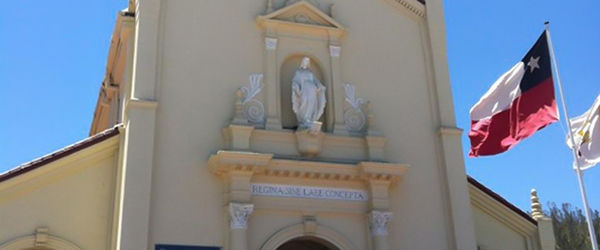The Second Vatican Council gave the Bible a central place in the life of the church, a Scripture scholar said during a symposium at The Catholic University of America.In a talk on the council's Dogmatic Constitution on Divine Revelation, "Dei Verbum," Hellen Mardaga said Vatican II not only opened the door for scholars to study the Bible using the modern methods of historical criticism, but also enabled them to publish their findings and make them accessible to the Catholic public.Mardaga, an assistant professor of New Testament at Catholic University, said "Dei Verbum" invited the faithful to nourish their faith from the Scriptures, a sharp break from the 16th-century Council of Trent, which taught that interpreting the Bible was a task reserved for bishops.Her Sept. 27 talk was part of university’s symposium "Reform and Renewal: Vatican II After 50 Years."Mardaga contrasted Vatican II's teaching on revelation, including the Bible, with that of the First Vatican Council, held in 1869-70, and two papal encyclicals.Vatican II emphasized, she said, the church's doctrines are not themselves divine revelation but rather, Christ himself is the sum total of revelation.The council's understanding of revelation is relational, she said. "It has to do with the relationship between the Father and the Son. It is in that interpersonal relationship that we Christians participate."Vatican I presented the church as the guardian of revelation; Vatican II put the emphasis on the action of the Holy Spirit who moves our hearts and opens our minds.Vatican I taught that faith is submission of one's intellect and will to God, Mardaga said, but for Vatican II, faith is a gift of oneself to God.Likewise, the 19th-century council taught that God wished to share divine benefits with us; Vatican II said that God wanted to manifest himself to us and communicate with us, she said.Vatican I presented the church as the guardian of revelation; Vatican II put the emphasis on the action of the Holy Spirit who moves our hearts and opens our minds, she said.The Council of Trent, in a view upheld at Vatican I, maintained that the New Testament was written by the apostles from the mouth of Christ or by the apostles through the dictation of the Holy Spirit, Mardaga said.Pope Pius XII, in his 1943 encyclical "Divino Afflante Spiritu," on promoting biblical studies, asserted that while God is the author of Scripture, the Bible also is the work of human hands, she said. The author used his own faculties and powers, and his own character affected what he wrote and how he wrote it."Dei Verbum" went further and asserted that God chose certain men to write the books of the Bible and they are its true authors who wrote what God wanted consigned to writing, she said. Any contradictions in the Bible are the result of it being written by human authors.Further, because God is speaking in a human fashion, the Bible needs to be interpreted, she said.Vatican II also maintained that it was not only the apostles, but also others living in the apostolic age, who wrote the Gospel. Despite that, the Bible still must be seen as inspired by God, she said.The church's magisterium is still presented as the authentic interpreter of the word of God. However, Vatican II states that the magisterium is not superior to the word, but rather its servant, Mardaga said.In his 1893 encyclical "Providentissimus Deus," Pope Leo XIII encouraged the clergy, but not laity, to study Scripture. Fifty years later, Pope Pius opened up the study of Scripture to the laity, she said.The Vatican II Constitution on Divine Revelation said that not only is Christ present in the bread and wine, but he also is present in Scripture. Access to the Bible then "must be open wide to the Christian faithful," Mardaga said.—CNS{gallery width=100 height=100}gallery/2012/1012/vatbible/{/gallery}

